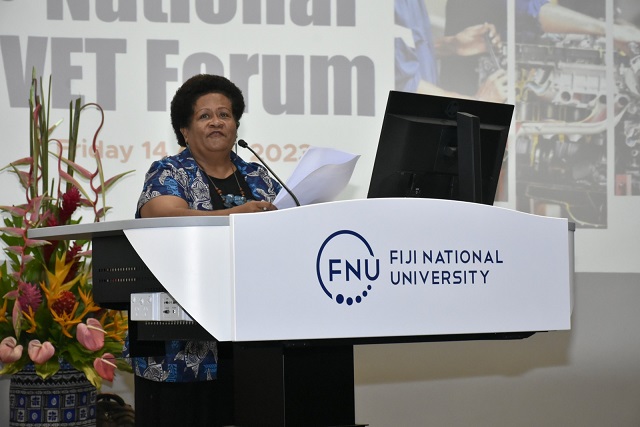STUDENTS owe the Fiji National University $35million in unpaid fees, according to its vice-chancellor Professor Unaisi Nabobo-Baba.
Prof Nabobo-Baba told the public during a consultation in Labasa that many of these students came from disadvantaged backgrounds and struggled to pay their fees.
“They are from underserved families,” she said.
In response, she said the university launched a foundation aimed at helping students through scholarships and other support.
“On the first day, the university raised between a quarter to half a million dollars.”
She said all FNU staff members were invited to contribute part of their fortnightly salary, from $1 up to $1000.
“On that day, we committed all our pay cheques because we believed in the cause.”
She said the foundation was an important step in ensuring students from underserved communities were able to continue their education without being left behind.
TVET pro-vice chancellor Dr Isimeli Tagicakiverata said while the university was a national institution, it was not rich.
Dr Tagicakiverata said the university depended heavily on government grants which had decreased over the past two years.
“To address this, we’ve been trying to maximise our efforts using limited resources,” he said.
He said the university had five schools and two centres, with campuses spread across Fiji all working to deliver education in both higher education and technical and vocational education and training.
“Whether you’re focused on higher education or the TVET stream, as a national university we’re committed to delivering both.”
During a public consultation in Labasa, he said higher education now included everything up to PhD level, while TVET was currently limited to the diploma level.
“Regardless of the pathway someone chooses, either higher education or TVET, we’ve created a lot of integration and opportunities.”
He said the university was able to take someone who had dropped out of primary school and help them work towards a full qualification.
“We have a pathway for them to achieve a full qualification, beginning with a certificate. And if they’re determined, they can work their way up to a diploma or even a degree.”
Despite the drop in their budget, he said, there graduands had addressed the skills gap faced in the workforce.



